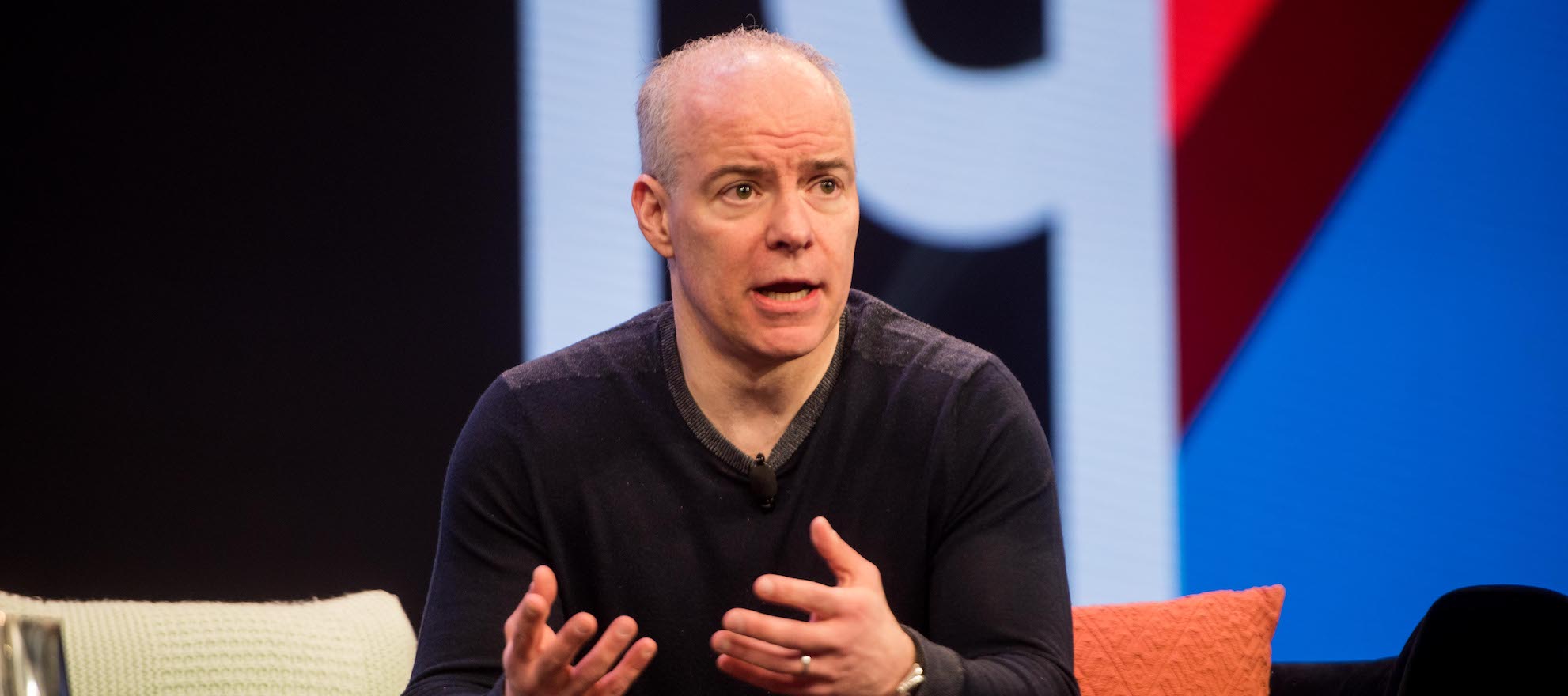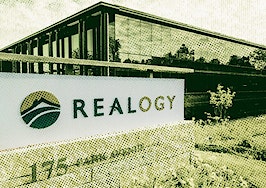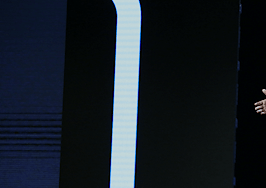Ever since taking the helm of Realogy, CEO Ryan Schneider has been laser-focused on driving efficiencies and making the company move more quickly.
It makes sense, looking back at his resume, with stints as the president of the credit card business at Capital One and a partner at McKinsey & Company.
Schneider has run the nation’s largest holding company for two years now and has seen a number of big-time partnerships start and end, the launch of new products and franchise brands and a roller-coaster stock price.
Ahead of his appearance at Inman Connect in New York in January, Schneider sat down with Inman to discuss his two years atop Realogy.
You’ve been at the helm of Realogy for two years now. What surprised you the most about the real estate industry, coming in as somebody that didn’t have a background in it?
It’s been two years and I’ve actually never been more excited about Realogy and the industry than I am right now. I’ve been very excited over the last couple years and many times, like right now we’ve got this really exciting situation here at Realogy where we’re really delivering a lot of new products to the market, we’re launching a number of new national partnerships for high-quality leads, we’ve got technology solutions that are improving our agents and franchisees ability to win business.
We’ve got our national scale and the competitive environment is a little more rational. There’s been this kind of return to quality after that WeWork phenomenon. It’s two years in and I’ve probably never been more excited about where we’re at with Realogy and the potential that’s in front of us.
That all makes sense, but is there something that surprised you? Maybe a preconceived notion or something you didn’t expect?
For me, Patrick, still, and I think it’s a great opportunity for Realogy, is the untapped potential for technology change in this industry. To use technology differently to help consumers, to help agents, to help franchisees, this industry is just scratching the surface and has so much opportunity to catch up to what other industries have done.
I came in knowing that there was some of that opportunity, but even two years in, I am still surprised how much more of that opportunity remains. But it excites me because I think we can play a real role in driving that change with some of the things we’re doing on the technology, data and product side. That surprise also feeds my excitement.
Last time we spoke you really emphasized the need to move more quickly and nimbly, which is obviously difficult for a company your size. Do you feel that you’ve begun to achieve that? What are some actionable steps you’ve taken to achieve that and is there still a lot of work to do in that area?
I’m incredibly excited about how much faster we moved in 2019, versus 2018, but I am also still incredibly wanting us to move even faster in 2020, than we did in 2019. If you look at 2019 and compare the past, we did this RealSure product in the last couple of months and we went from nothing to 10 cities, not just in our own operations, but we’re actually including the franchisees in that. We launched the Realogy military rewards program in under 30 days, it’s already got a lot of momentum going. We put multiple new products and partnerships into the market, so we’re showing that we can move at an even faster pace in 2019 then we did before. But I always want to go faster. It’s going faster that gets more out there, for agents, franchisees and consumers. I want to build on the momentum we showed this year and move even faster in 2020.

Realogy CEO Ryan Schneider speaks at Inman Connect in New York in 2019. Photo credit: Kyle Espeleta/Inman
One of the things that you have talked about a lot on earnings calls this year was the need to cut costs and the steps that the business is taking towards doing that. How are you actually cutting costs? Is it something that you expect will have an impact on agents’ businesses at all?
Our focus is to do everything we can to make our agents, our franchisees and our customers successful. Part of that focus always needs to be trying to run your company more efficiently not just to save money, but actually so that you can move faster and you can take some of that money and re-invest it the things that are going to drive growth, like re-investments in high-quality lead generation partnerships that we’re launching. Like re-investments in much more updated, easy to use and agent-friendly offices. A lot of what we’re doing on the efficiency side is not about just cutting costs for its own sake. I tell my team all the time, you can’t cut your way to greatness. You’ve got to actually drive growth. What that means is, for a big company like ours, anything we can do to be more efficient will help us move faster, will give us more money to invest and that’s why we keep focusing on running the company differently. The fact that there’s some efficiency gains is a byproduct of that goal, helping our agents, franchisees and own company grow.
What does cutting costs look like? Reducing the office space footprint, reducing upward pressure from commission splits, selling businesses like the recent sale of Cartus’ relocation services arm?
The places that we’re putting most of the effort in, that shows up in better efficiency as a company, a lot of it is around moving faster and delivering better to agents. For example, we absolutely have closed some offices this year, which helps on the efficiency side, but we haven’t just closed them to close them. In one place, we closed two offices so that we could open a new office that was much more modern, with much better services and support for agents. It’s architected better, it’s got more modern kiosks. A lot of what we’re doing is redesigning our physical footprint to better serve our agents and upgrade at the same time.
The other thing we’re trying to do is move faster so we’ve moved multiple teams together in both Sotheby’s International Realty and Coldwell Banker, so we can speak to the market with one voice as a brand. Instead of making decisions across two teams, we have one team make the decision and its a faster decision, it gets to the market and it helps agents and franchisees better.
You mentioned earlier in this conversation and on the company’s most recent earnings call that competitive pressures have fallen quite a bit. Can you expand on why you think that is and do you believe its a short-term thing or something that will carry through 2020?
We can’t predict what others are going to do, we spent most of our time focused on what we’re trying to do help agents and franchisees, including the products, high-quality lead partnerships, technology, data insights and things like that.
That said, we watch the competitive environment very closely and there has clearly been a flight to quality in not just our industry but other industries in the last three or four months. In an industry where three of the top six owned brokerages lose money, we like to make a substantial amount of money. We like the fact that the market is looking for that flight to quality and we’re seeing that show up in the competitive environment also. We think that’s good for us, we think that’s good for our agents, we think that’s good for our future prospects.
We can’t predict what others are going to do in 2020, but we love going into 2020 with a value proposition that’s proven, with the financial strength that we have as a company and with the new things that we’re doing to help our agents and franchisees grow.
Giving out big signing bonuses is something that you have said doesn’t make financial sense for Realogy and is something you haven’t pursued. But a lot of times our readers point out that’s always been Coldwell Banker’s business model. Is that something you have directed Coldwell Banker to not do in recent years?
The phenomenon of six- and seven-figure signing bonuses that has happened in some uneconomic ways in our industry in the last couple of years, is not something that I believe Coldwell Banker was ever a part of, or will be a part of.
Our focus is typically on helping our agents grow, whether its new agents or recruits, younger agents in their careers, or our most experienced agents who have earned incredibly great economics and deserve every penny of that. We’re here to support all of them.
We don’t do any of the seven-figure bonuses that have affected the industry. We don’t think it’s economic or sustainable. That type of approach has a lot of people losing money in an industry where we are a profitable, national company that people can be with for the long run and have a long career and be successful.

NRT CEO Ryan Gorman, far right, along with Realogy CEO Ryan Schneider and other Realogy employees. | Photo credit: Realogy
Regarding not just the lawsuit with Compass, but other lawsuits that Realogy brands have been involved with over the years, is that just the natural course of business or is too big of a deal made over these lawsuits?
I don’t think our agents and franchisees care about lawsuits that happen at the Realogy corporate level. They care about what we’re doing to support them in the market, which is why in this conversation and every conversation, I try to stay as focused as I can on the value proposition we’re providing and the new things we’re bringing to market to try and make people successful growing their business.
We’re the largest owned and franchise brokerage company in the U.S. We’re also really the only one that’s public. I think a degree of litigation is the norm for any company that has that profile in any industry. While we focus on that at the corporate level, it’s not what our agents and franchisees focus on and we stay focused on what’s important to them.
Looking at the biggest own-side brokerages in the industry, you’re one of the only ones that isn’t growing by acquisition. HomeServices of America, Compass and others have all had big acquisitions in the past couple of years. Why do you think growing through acquisition doesn’t work, or doesn’t make economic sense in the current environment.
We’re not against acquisition if the economics are good for both parties but what we’ve seen in the current environment when you look at both our results from acquisitions when you look at, say, 2015 to 2017, as well as when you look at some of the other data that’s available out there in our industry, is, you can do acquisitions and get a lot of topline growth, but you don’t get bottom-line growth from acquisitions. There’s a breakage component to that, there’s an agent commission costs component to that. I just don’t believe that’s the best way to use our capital to help our agents, franchisees and our owned company grow.
I’d rather invest our capital in delivering great products to people or building new high-quality lead generation partnerships, or investing more in technology and data, or launching new products for that. In the current environment, I don’t think it’s a great use of capital so we’ve stayed away from it. I found it interesting that even some of our competitors who have been doing acquisitions don’t seem to have done as many recently. At the moment, that’s our view, but we’ll always be looking at everything.
How much of the day-to-day do you spend thinking about Realogy’s stock price? It’s been up and down every year, dropping over the summer but bouncing back up recently.
One of the first things I did when I took over as CEO was that I actually had a Bloomberg terminal taken out of my office. While it’s important for me to understand our stock price and a lot of my job is to take really good care of our investors and shareholders, and that’s a really important part of it, you can’t get caught up in the day-to-day or week-to-week movements in your stock price, or even month-to-month. You have to stay focused on building a great company that’s going to support customers, whether its consumers, agents or franchisees.
Those are the things, along with the company strategy and the talent that we have at the company, that I spend most of my time thinking about.
And while I always need to be aware of our stock price, I think the symbolism of taking the Bloomberg terminal out of my office is a real answer to your question.
Speaking to the industry broadly, what are some trends you’ll be following in 2020?
One is literally just what is going to be happening with the housing market. After a very tough end to 2018 and a tough start to 2019, we’ve had multiple quarters of improvement and I’m excited about that. We have low rates, a pretty healthy economy. I’m rooting, of course, we all are, for a strong housing market, the trajectory of it has been good and we hope that continues.
We’re really focused on how we’re going to expand some of our products, the RealSure one is an example. For us, RealSure is a better way to approach the iBuying phenomenon. Instead of the consumer paying a large fee and taking a discount on their house price, we give them the certainty of an offer that they can get for 45 days and we try to sell their house for the best price possible. We’re already in 10 cities with franchisees and agents, we’re excited to roll it out more broadly. With all of the capital deployed against iBuying, I think that’s a trend that we’ve got to be watching closely and seeing if our approach, which is a bit different, works as well as we think it’s going to work. We’re really excited about these early results.
Then the technology trend I talked about from an acquisition standpoint. How are we going to disrupt the technology in this industry? What are we going to do to improve it? How are we going to make agents’, franchisees’ and consumers’ lives easier in the home sale transaction process? Whether it’s linking our closing with our title and mortgage business to help people do it in a one-click way, or its new innovations we bring to the market.
You can make real-life, long-lasting, legit connections and friends by attending Inman Connect.
Create your own success story at Inman Connect New York, Jan. 28-31, where over 4,000 industry professionals gather to forge new relationships, share tactical takeaways and discover the latest technology to boost their bottom line.
Thinking of bringing your team? There are special onsite perks and discounts when you buy tickets together. Contact us to find out more.


























